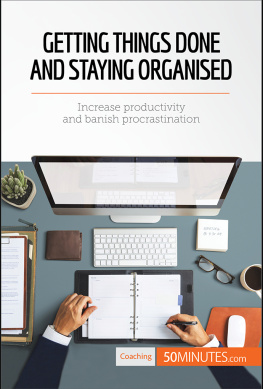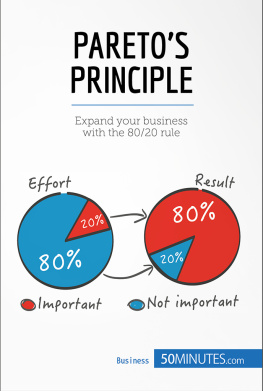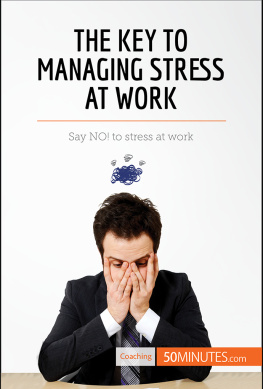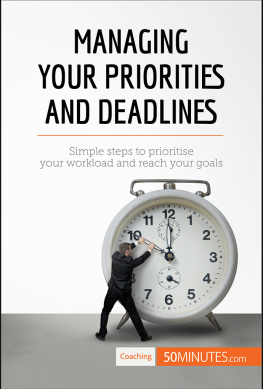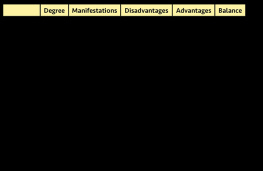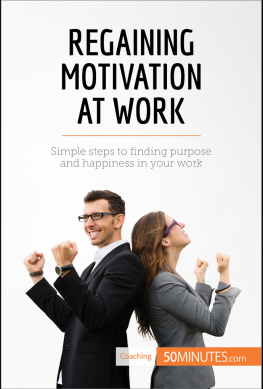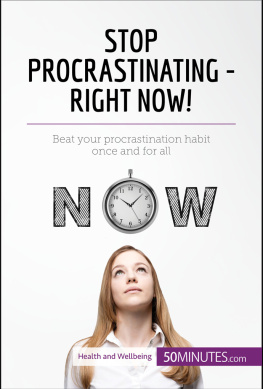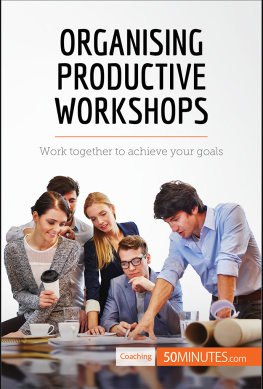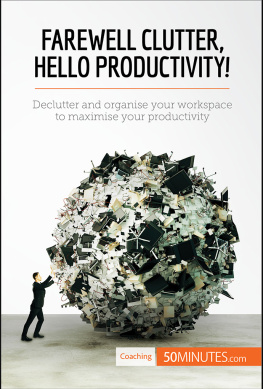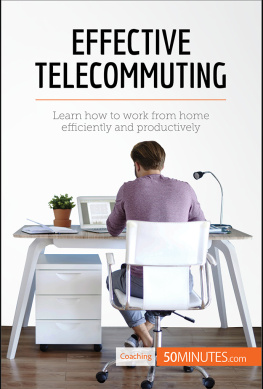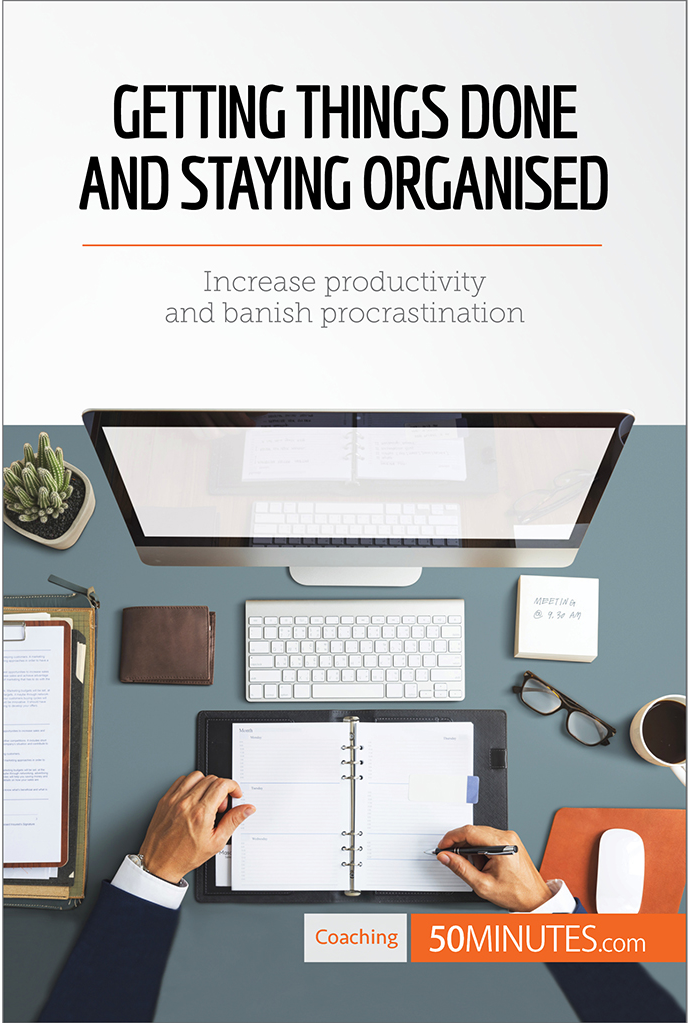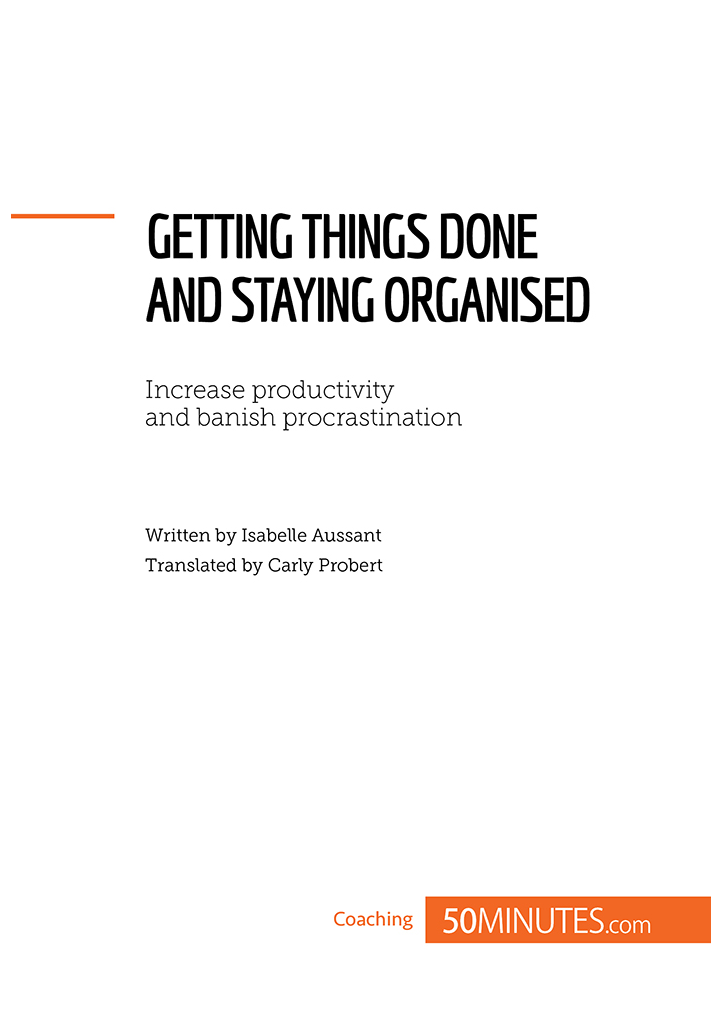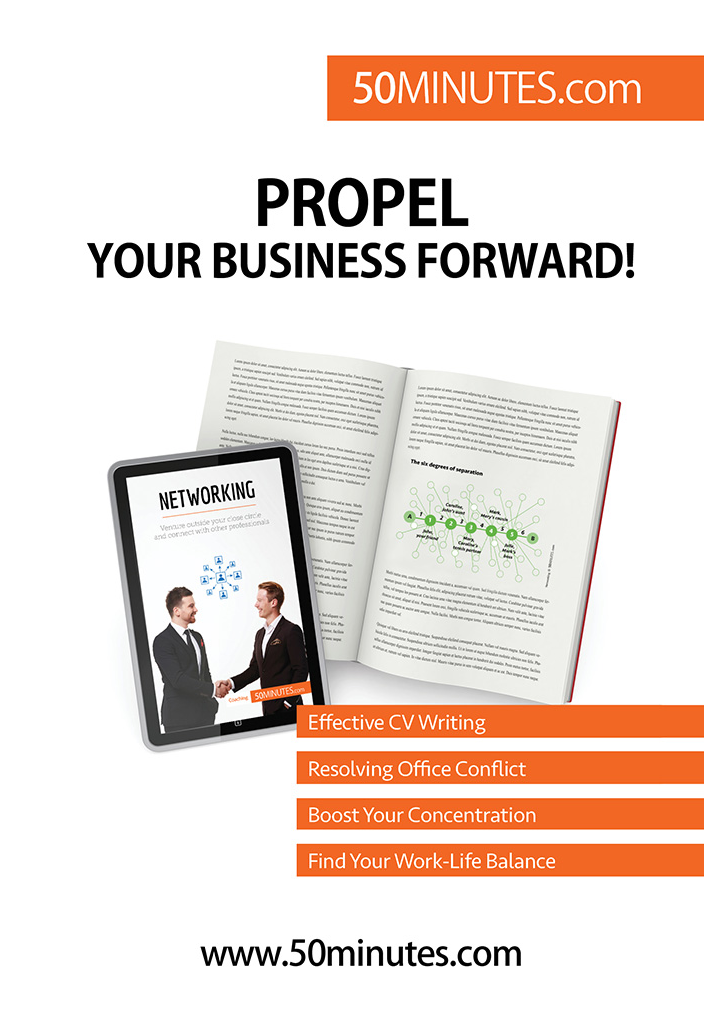Getting things done and staying organised
- Problem: how can you better organise your workload?
- Uses: good organisation at work is the key to efficiency: it allows you to reduce the chance of unexpected events whilst saving your energy.
- Professional context: personal organisation, organisation within the company, internal communication, delegation.
- FAQ:
- Where do I begin?
- How can I spot the obstacles to good organisation?
- How can I regulate stress that prevents me from working?
- What is the role of delegation in the organisation of work?
- Organisation and communication: do they go hand in hand?
- How can I optimise my time?
- How can I manage my priorities?
Do you feel overwhelmed or swamped by the number of things you need to do at work today? Do you not even know where to start, even though the stress is beginning to overwhelm you? This means that you urgently need to get organised, before things get out of control!
Organisation is actually a tool for wellbeing at work, which means that you will be less stressed and more efficient in your tasks. In a professional environment that is certain to demand more and more from you, where time is broken up and tasks are endless, being able to intelligently organise your work becomes almost a condition of survival.
Good organisation is acquired through the use of tools, but also through self-awareness with regard to your values, needs and limitations. As such, in this book you will find the key to better organisation, which is tailored to your personal functioning.
The objective is to implement green organisation, meaning organisation that suits you, through an overall reflection on your personality and the tools that you will be using, as well as your working environment (your colleagues and the companys values). This way, you will not have to force things and your professional circle will see you as incredibly efficient!
Features of a well-organised worker
Framework set by the company
You are probably not responsible for the organisational framework of your company, but you do have to live with it. It therefore plays an important part in arranging your personal workload. This framework is designed in the interests of a company, as it allows it to optimise its operation and costs, but it is also intended to benefit people, by respecting each individual within that company.
Thus, organisation appears to be a strong point of communication within a company, as it establishes a protocol that allows each service and each individual to speak the same language. For this protocol to be implemented, it must be precise and comprehensible, i.e. simple, logical and easily transmitted. It must also be a source of inspiration for each individual organisation and serve as an example or guideline for them to follow.
This is explained by Pierre-Marie Gadonneix, administrative and financial director at ITV Studios France , who has experienced strong human resource development in his company over the last few years.
Our ultimate aim is to produce television programmes. Organisation is therefore paramount as it is a way of optimising the primary function of the company. Cost optimisation requires more efficient organisation to allow for maximum respect of the human resources function. We must make sure that the pressure required for the function does not negatively affect the working atmosphere.
[]
There cannot be multiple operating systems within a company. It is important to establish common processes to which every employee adheres, right from recruitment. Otherwise, this not only creates practical problems for projects, but also tension within the team.
Know yourself
Values
Our values make us who we are on a very fundamental level: they are embedded in us. They give meaning to our actions and lead us to act with all the strength we are capable of. It is therefore essential to know how to make best use of these fundamentals. We are naturally more efficient at tasks that are consistent with our values. Conversely, if our values do not line up with tasks, each of them requires considerable effort, often leading us to postpone them until later (procrastination), hoping that we will eventually find the motivation.
Depending on the physical or psychological situation in which we find ourselves, we draw more or less on a specific value. This means that we constantly review our scale of values, so it is important to regularly re-examine what is important to us.
Becoming aware of the values that sustain us enables us to prioritise tasks and thus to organise ourselves more naturally. Pay attention to your desires, because the tasks you want to do will be completed with greater speed and ease. But do not forget to buckle down occasionally (when your energy level is at its highest) to tackle the less rewarding tasks
S ELF-REFLECTION
- What are your values? They could include family, friends, work, contribution to society, sport, respect, social success, honesty, sharing. Write down everything that matters to you.
- Rank them in order of importance: try to determine the values that influence the majority of your actions and behaviours.
- How does your work contribute to them? What could you do differently to achieve greater personal integrity?
Limits
Knowing yourself is also about knowing your limits. These must be taken into consideration when getting organised. We all have helping limits, those that allow us to respect and be compassionate with ourselves, and limiting limits, which prevent us from acting or carrying out an action. They either protect us or hold us back. It is therefore important to identify them in order to turn them into a strength for our organisation. Ask yourself the following questions:
- What are my helping limits, those that protect me, preserve my energy and allow me to be consistent with myself and evolve?
- Example: I only accept physical contact, such as a hand placed on my shoulder, from my close friends.
- Conversely, what are my limiting limits, which restrict me and prevent me from moving forward?
- Example: I usually stay silent during group meetings; I prefer to let others talk.
- What are the limits I impose upon others? Do I formulate them clearly?
- What do I do when a person crosses my limits? Do I react in a way that makes them understand?
By answering these questions and defining these elements, you will be clear with yourself and farsighted in your actions. You will be a reliable guide for implementing coherent and organised actions.
It is also necessary to lay down these limits to others, in order to be consistent with your professional circle. For this, an essential relational competence is required: being able to say no. Jacques Salom, a French psychologist and writer, explains that saying no to somebody else means saying yes to yourself. Knowing when to say no is one of the keys to good personal organisation and contributes to personal development. By refusing some things, you avoid letting others control your actions and can be consistent with yourself: it helps you to distinguish between your priorities and those of others. Saying no is also easier to do when you clearly recognise the needs you say yes to!

